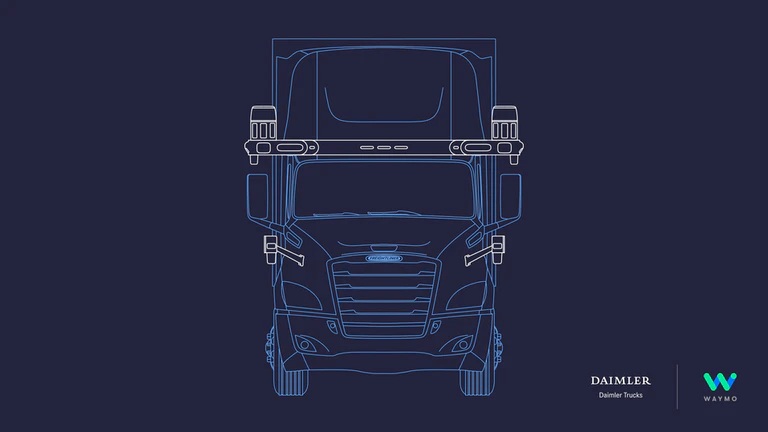The new partnership will focus initial efforts on combining Waymo’s automated driver technology with a new version of Daimler’s Freightliner Cascadia trucks.
Daimler Trucks and Waymo signed a global strategic partnership to deploy Level 4 autonomous technology on Freightliner Cascadia trucks, the two companies announced on Oct. 27.
“The ever-rising demand for road transportation — fueled in part by all this e-commerce growth we’re seeing — creates this great and compelling business case for self-driving trucks in the U.S.,” Roger Nielsen, president and CEO of Daimler Trucks North America, said during a virtual press conference on Oct. 26. “Automated trucks, we believe, have huge potential. Not only for trucking companies but for society, our customers, and the overall economy. There are 4 million miles of public roads in the U.S., which makes us a perfect place to introduce the integration of the Waymo driver solution with our safest on the road Freightliner Cascadia trucks.”
According to the two companies, their initial efforts will combine Waymo’s automated driver technology with a new version of Daimler’s Freightliner Cascadia. Waymo has tested its self-driving technology in the Southwest on Class 8 Peterbilt trucks outfitted with Waymo Driver sensors and cameras. This summer, that technology was being tested on runs in Texas among Dallas-Ft. Worth, Houston, and El Paso. Testing has also extended across New Mexico and Arizona and around California’s Bay Area.
By August, the Waymo Driver platform had traveled 20 million miles of public roads across 25 cities. The artificial intelligence system has also completed more than 15 billion miles of simulated testing.
Waymo’s work with Daimler will also focus on the Southwest U.S. to start, but the companies aim to expand across the rest of the U.S. and eventually into Europe and other markets.
John Krafcik, Waymo’s CEO, noted that his company began autonomous commercial truck testing in March 2017. “We’ve been focused on adapting and deploying that Waymo Driver and using it in the Class 8 space,” he said during the press conference. “It turns out there are a lot of synergies between driving in cities and driving big trucks. And I think that puts us in a unique and very special place to be able to deliver this amazing technology to the world.”
Krafcik declined to say how large the fleet of autonomous Cascadias would be during development testing other than to say it would be “pretty big.” He added: “As we commercially deploy the technology together, we’ll have as many trucks as we need to service the needs of our customers.”
The autonomous Freightliner Cascadia truck, equipped with the Waymo Driver, will be available to customers in the U.S. “in the coming years,” the companies announced. The partnership, which does not include any financial investment from either side, will focus on marrying the expertise of the two companies: Daimler’s long experience with commercial vehicle development and systems, and Waymo’s software, sensing, and computing technologies, Krafcik said.
“The development of redundant steering systems, redundant braking systems, redundant powertrain control systems is extremely important for this space to evolve,” he said, noting that passenger vehicles are further along with those Level 4 autonomous technologies.
“On the Class 8 side, these components do not exist today,” Krafcik continued. “It’s going to take quite a while for those tier-one suppliers — and for folks like Daimler — to develop those redundant components. It turns out that what’s going to be one of the primary gating items for bringing this technology to the world is the development and mass production of safe and redundant steering, braking, and powertrain control systems that work with fully autonomous core solutions like Waymo.”
As road freight volumes increase, the need for automated fleet vehicles grows, Nielsen said. “We are pushing engineering solutions that strive above all to increase safety and help our customers improve business efficiencies,” he added. “Based on our collaboration with Waymo, we will be in the unique position to be able to provide our fleet customers with a choice among the best solutions for their individual requirements.”
By Josh Fisher
Source: https://www.fleetowner.com
CUT COTS OF THE FLEET WITH OUR AUDIT PROGRAM
The audit is a key tool to know the overall status and provide the analysis, the assessment, the advice, the suggestions and the actions to take in order to cut costs and increase the efficiency and efficacy of the fleet. We propose the following fleet management audit.




